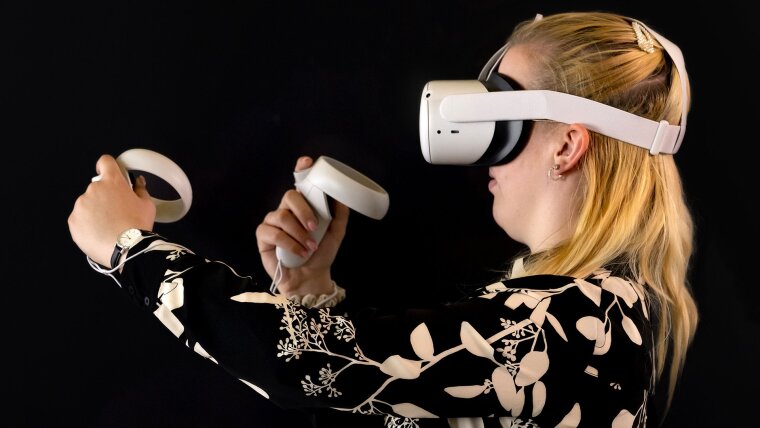
- Life
- Research
Published: | By: Juliane Seeber
Adolescent overweight is not only a risk factor for physical health issues, but also for cognitive impairments. A new international study has now demonstrated that a specially developed virtual reality sports program called REVERIE not only supports weight loss, but also significantly enhances mental performance – and does so by specifically influencing microbial and molecular processes in the body. The results of the study can be found in the scientific journal Nature Medicine.
Sharper Memory, Better Connected Brain
In this controlled study, researchers compared traditional physical activity with the VR-based REVERIE training over a period of eight weeks in adolescents with excess body weight. Both groups lost a similar amount of weight (on average about 3.5 to 4 kg), but the REVERIE group performed significantly better in cognitive tests: with both working memory and olfactory function showing notable enhancement. Brain imaging also revealed that REVERIE specifically influenced working memory processing, neural activation and functional reorganization.
Cognitive Benefits Linked to the Gut Microbiome
One of the key findings: The cognitive improvements triggered by REVERIE were closely associated with measurable changes in molecules, metabolic products, and particularly the microbial composition of the gut. These changes were observed only in the VR group – and strongly correlated with the improved cognitive outcomes.
“Our data show that REVERIE goes far beyond exercise: it actively alters the microbiome and key metabolic processes that appear to be directly linked to mental performance,” explains Dr Yueqiong Ni, researcher in the Cluster of Excellence “Balance of the Microverse”External link.
Microbial Communities at the Core
The Microverse-Cluster explores how microbial communities – for example in the human body – influence health and disease. The current study provides a concrete real-world application: “We demonstrated that a digital intervention like REVERIE can influence brain function through molecular and microbial changes,” says Prof. Gianni Panagiotou, Microverse Professor and Head of the Microbiome Dynamics Department at the Leibniz Institute for Natural Product Research and Infection Biology – Hans Knöll Institute (Leibniz-HKI).
This connection between brain, metabolism, and microbiome – investigated using so-called multi-omics analyses – highlights, Panagiotou adds, the potential of VR-based sports as a personalized therapy for adolescents with excess body weight.
Global Research, Real-World Solutions
More than 30 research institutions worldwide contributed to the study, including Shanghai Jiao Tong University, the University of Hong Kong, Harvard Medical School, Tsinghua University, and the National University of Singapore. The German team, especially the researchers in Jena, focused on the analysis of microbial and molecular data – a core strength of Cluster of Excellence.
Outlook: Digital Therapy for Obesity and Cognitive Disorders
The results underscore the potential of digital technologies like REVERIE to support targeted health interventions: physically, mentally – and microbially. Especially for adolescents struggling with obesity or lacking access to traditional sports programs, VR sports offer a promising and accessible alternative.
Original publication:
Wang, J., Qin, Y., Wu, Q. et al. An adaptive AI-based virtual reality sports system for adolescents with excess body weight: a randomized controlled trial. Nat Med (2025). https://doi.org/10.1038/s41591-025-03724-5External link
Contact:
07745 Jena Google Maps site planExternal link